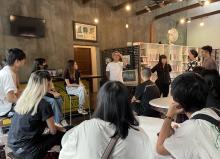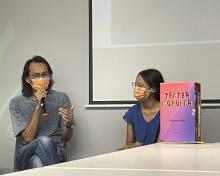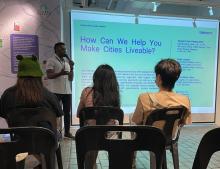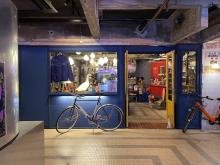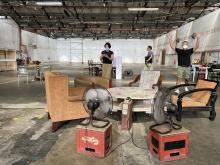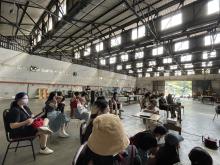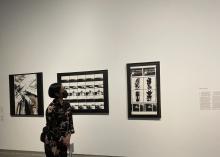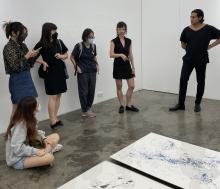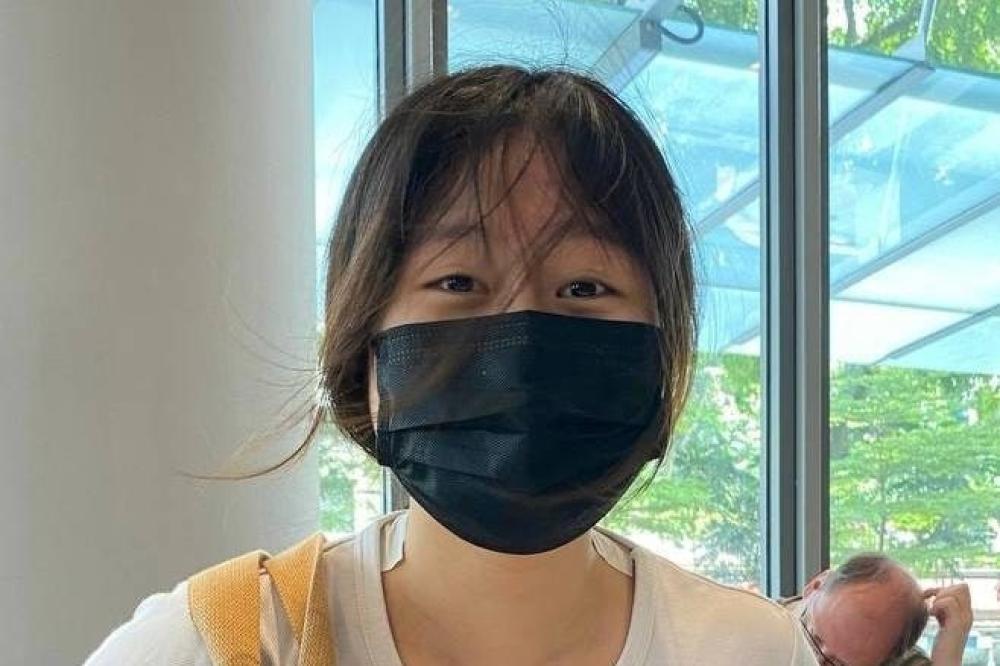
About The Course
The course focuses on meaningful cross-cultural collaborations, the challenges of archiving creative ecosystems and sustainable operating models. Firstly, it emphasises cultivating students' ability to define for themselves what are the essential components vital for meaningful cross-cultural collaborations by referring to arts archives that are indispensable resources pivotal for analysing past collaborations. Secondly, drawing insights from Centre 42 and various archivist platforms in Kuala Lumpur, the course underscores the significance of archives in nurturing creative ecosystems. It sheds light on the challenges of archiving and how to navigate them, ranging from the scarcity of information, lack of expertise in determining the best ways to frame ideas and difficulties finding a suitable intended audience. Thirdly, the collaboration with Five Arts Centre gave us a strong foundation in understanding sustainable operational and entrepreneurial models in Kuala Lumpur's creative landscape. Factors influencing these models—such as art forms, trends, politics, technology, and control over spaces—are thoroughly explored. While rooted in performing arts, the curriculum extends beyond, offering a glimpse into the visual art scene, unravelling the dynamics of commercial entities supporting or creating art in a predominantly non-profit sector. The comprehensive exposure equips students to not only understand the shared history but also gain insights into the cultural, socio-economic, and political facets shaping the arts and creative ecosystems in Singapore and Kuala Lumpur. Ultimately, this holistic approach fosters cultural sensitivity, preparing students for more enriched and meaningful cultural exchanges.
Reflection
As a first time traveller, I did not know what to expect or what questions I should keep in mind about another country. Now, I feel that no matter which country I may go, I want to notice the different interconnections and relationships between the state, the people and the many spaces that I would visit. During my time there, I wondered why in KL we spent a bulk of our time visiting many different types of space until I realised that it was not just about the space - it was also about how it connected to the wider neighbourhood, the relationship between artists and commercial entities such as developers and the symbiotic relationship between the artists and the spaces that artists reside, rehearse and render. What enabled Malaysia to operate in this manner and what made Singapore different are questions that I found my answers for during the trip. This module was a new experience for me as the individual assignment was writing a blog with regular updates. It was a unique learning method, offering open and continuous learning which fostered a sense of introspection. It showed me that writing doesn't need to be extensive or flawless. Simply jotting down notes in context can aid reference and reflection. Beyond this cultural exchange, I now feel that there is a lot more to know about Singapore and much more to know about the world. Never would I think that understanding someone in another country is simple now. There are many specifics that make solutions adopted in Kuala Lumpur to work there but not anywhere else. As Professor Su Fern allowed the students to take off the arts management hat and really think about how we could fit into the arts ecosystem, I started to consider how cross-cultural user research can be done and how can a solution from a country be tailored to fit another. At first, we delved into Malaysia's extensive history and its connection to the evolution of theatre, but I struggled to understand how we could apply what we learnt. It wasn't until I attempted to create a comprehensive mind map encompassing various facets of KL and Malaysia that I started to piece together each lesson into a larger context. Throughout the process, I imagined how an ecosystem can best be captured through creative visualisation. In essence, this journey expanded my outlook by revealing the distinct ways of life in Malaysia, showcasing how neighbouring countries can possess subtle yet significant differences not immediately evident.
Final Presentation Video:
If you are interested to further learn about Lydia’s journey and course reflections, you can read more on her blog!
Thank You Notes to Benefactors
Dear Donor,
I am writing to express my sincere gratitude for the Jakkie Choo – Tradecom SMU-X Overseas Exposure Grant, generously established by Tradecom Services Pte Ltd. This opportunity allowed me to embark on a 12-day adventure to Kuala Lumpur, marking my first time staying abroad since I was three years old. Whilst initially scared and lacking a proper suitcase, this trip turned out to be a transformative experience that significantly broadened my horizons. Reflecting on my time in Kuala Lumpur, I realized the value of exploring new places and engaging with diverse communities. Meeting arts practitioners enriched my understanding of different perspectives and sustainable operating models. Now, I finally understand why Ms Jakkie Choo loved travelling and exploring the unknowns. I am super thankful for this opportunity, as those 12 days in Kuala Lumpur were truly life-changing. I hope to sustain the value gained from this experience, cherishing the profound impact it had on my perspective and fostering a continued journey of discovery.
